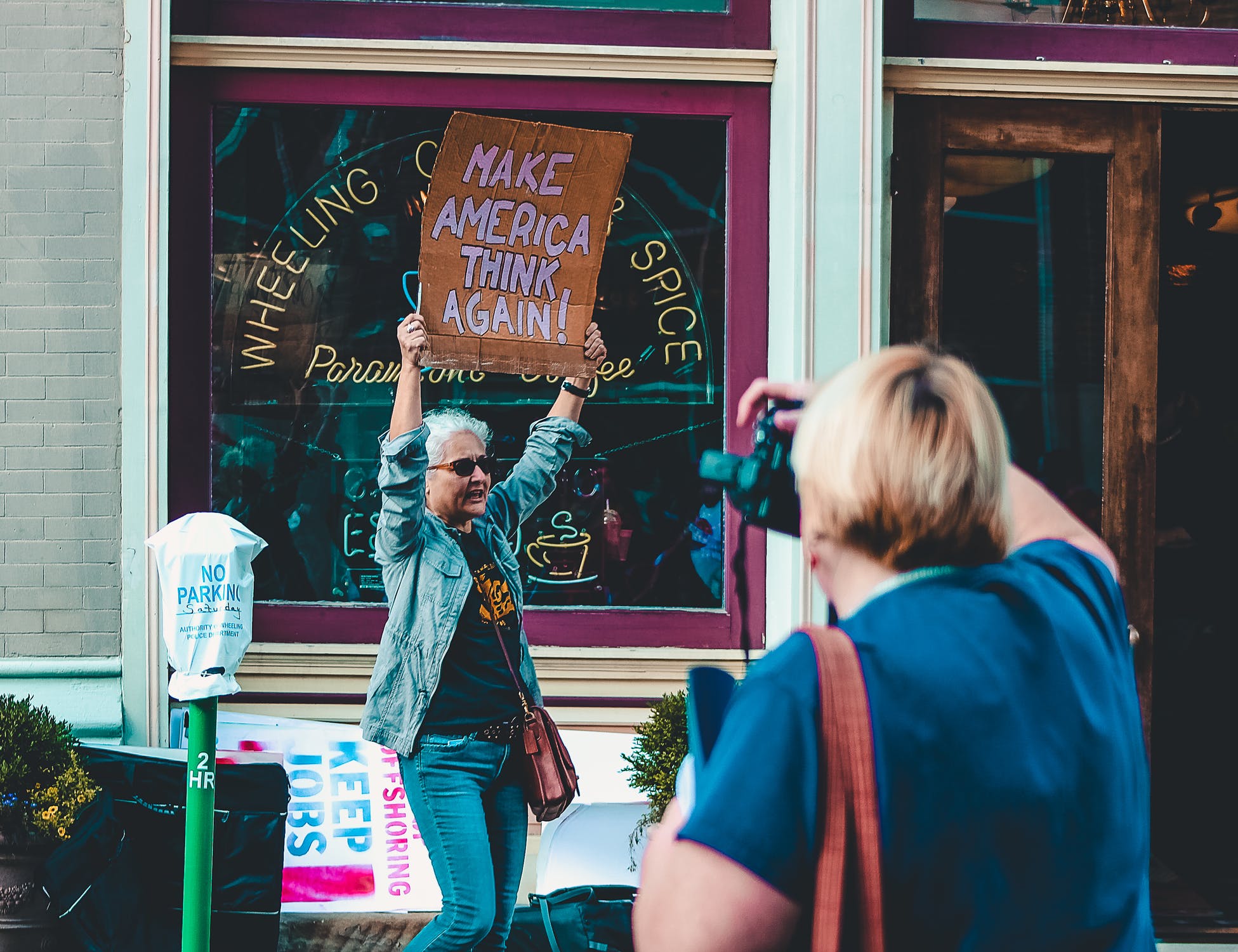When I find myself growing frustrated with the juvenile tenor of modern American political discourse, I just repeat these eight powerful words: “I know you are, but what am I?â€
Pee-wee Herman’s ironclad comeback is as relevant now as it was when he first unleashed it, and I’m not just saying that because I’m one of the few Wagner students old enough to remember when that was. The next election will be a policy battle, to be sure, but just as importantly, it’ll be a rhetorical battle. As Democrats prepare to take on the man-child in the White House, they should, like the man-child from Pee-wee’s Playhouse, seize every opportunity to use a little verbal jujitsu to take back control of the political narrative.
It’s as easy as it sounds. For instance, the next time you hear someone complain about political correctness, assure them that you, too, hate that the Republican party refuses to acknowledge the very real danger white nationalism poses to our safety. “I think it’s a small group of people that have very, very serious problems,†President Trump said after terror attacks on March 16 in New Zealand mosques that killed 50 people. Few Republican officials have called him out for such tepid and carefully worded sentiments, which he’s also expressed after attacks in Charlottesville and Pittsburgh. It’s almost as if the party has strict rules about what kind of language is correct, politically, for discussing things like white nationalism, terrorism (“radical Islam†or bust!) and patriotism (watch how the GOP reacts if a liberal politician even implies that the United States may not be absolutely perfect in every way).
At this point in the conversation, my perspective might be dismissed as the ravings of a typical snowflake, a popular term for the kind of person who believes he is so special and important that anything that hurts his feelings is by definition wrong and perhaps even illegal. This would be a good time to bring up our chief executive’s Twitter account, where he vents every day about how unfairly he’s treated by the media, Republican-appointed judges, Robert Mueller and even objective reality, as evidenced by his desire to “open up†libel laws to make it easier to punish journalists for unfavorable coverage. Or if, like Pee-wee, you’re a fan of puns, you could bring up Representative Devin Nunes. The Republican from California is currently suing people who were mean to him on social media, including a Twitter handle called @DevinCow, which has assaulted the congressman’s delicate sensibilities with cruel insults like “He’s udder-ly worthless.†See, Americans really are getting soft, just like the pundits on Fox News always say.
This might be a logical opportunity to segue into a discussion of how Republicans seem to be the stronger party where it really counts: public safety. They project strength in everything they stand for, from the border wall, to the travel ban from majority Muslim countries, to stop-and-frisk police tactics. With Republican legislators’ support, Trump also withdrew the U.S. from an international treaty to prevent Iran from developing nuclear weapons, as well as from an international treaty to prevent global warming from making the Earth uninhabitable. Again, these moves (along with some aggressive talk from the president and Cabinet members like Secretary of State Mike Pompeo, who in March said “it’s possible†that Trump was sent by God to save the Jewish people) are all transparently designed to project an image of strength. The president and his enablers operate on an inverse of the “speak softly and carry a big stick†doctrine, placing them not in the company of Teddy Roosevelt, but rather Gen. George Custer, who found out just how weak you can be when your tactics are built on bravado instead of strategy.
Of course, there are limits to the “I’m rubber, you’re glue†strategy. If you get labeled a social justice warrior, for example, don’t try to deflect it — instead, own it. We liberals have a lot to gain from proudly staking a claim as the party of liberty and justice for all. It’s catchy, it’s patriotic, and best of all, we don’t have to put anyone else down in the process of carving out that niche. If someone calls you bleeding heart, say thanks and remind them that empathy is an integral part of democracy.
That last part may actually be our best counterargument to Trumpism: It might sound cheesy or cliché, but inclusion beats exclusion every time. If you look at it in a certain light, the strategy I laid out above is a form of inclusion, pointing out all the ways that popular digs against liberals apply just as aptly across the aisle. However, we should remember that even debates that start with pointing out hypocrisy should end with compassion, forgiveness and patience. It’s exactly the kind of lesson you might learn at the end of an episode of Pee-wee’s old show: After we neutralize the name-calling and dismantle the lies, we’ll find there’s plenty of room for everyone in the playhouse.
Ryan Newberry is a first-year MPA student at Wagner. Like Saul Alinsky and Pee-wee before him, he’s a proponent of holding those in power accountable with strategic humor and humiliation. You can find him on Twitter at @NewbsJersey.




